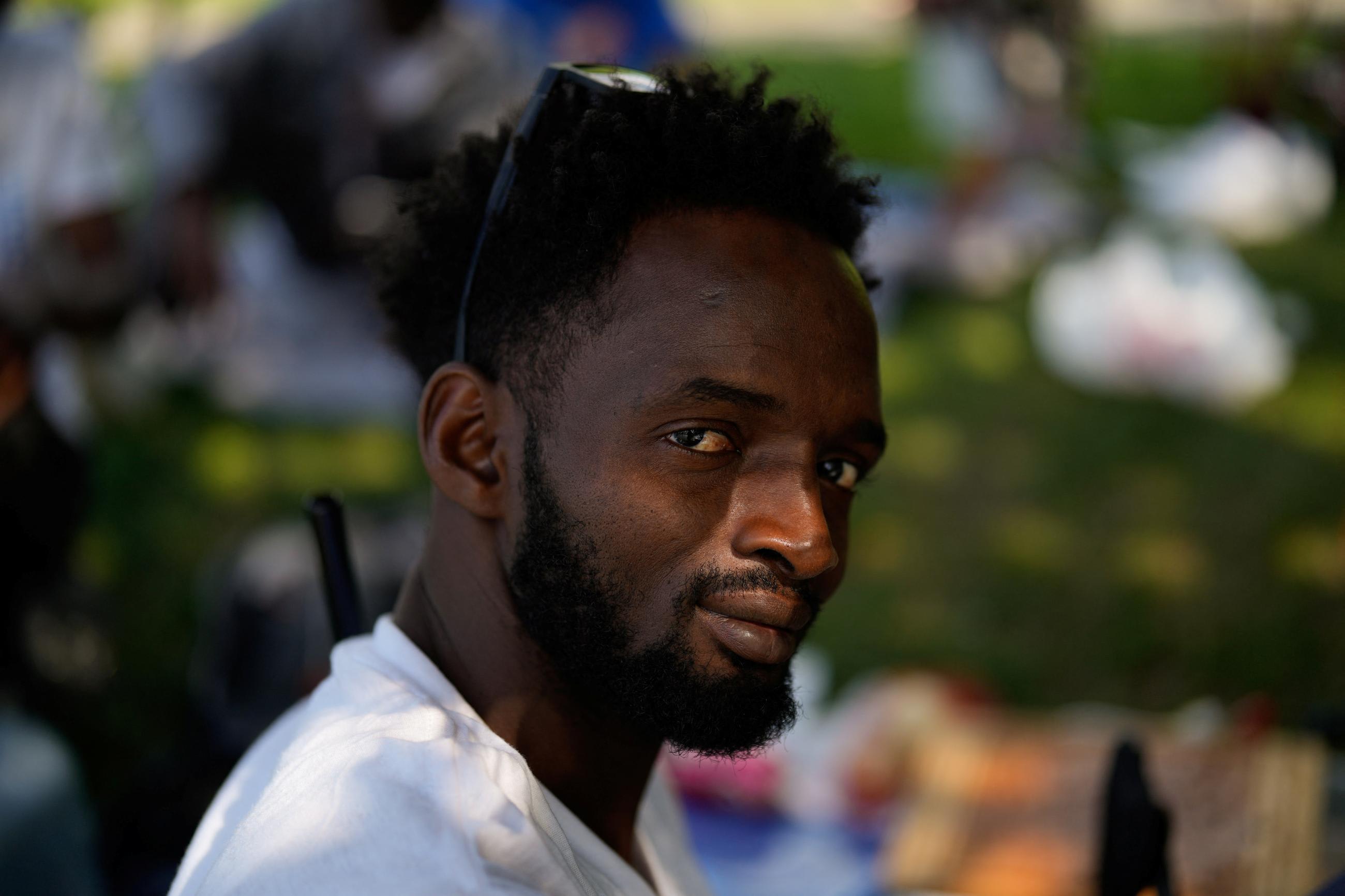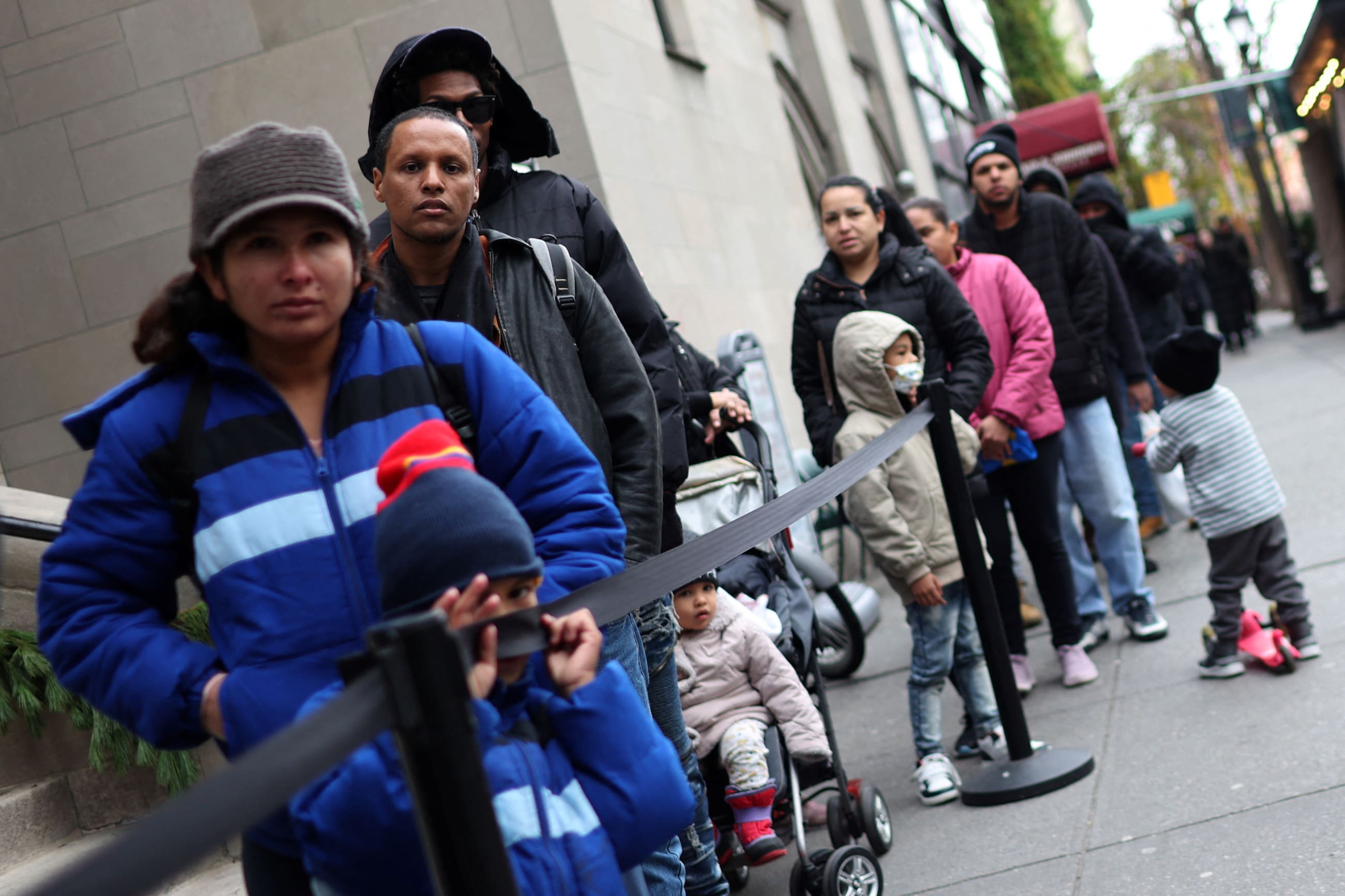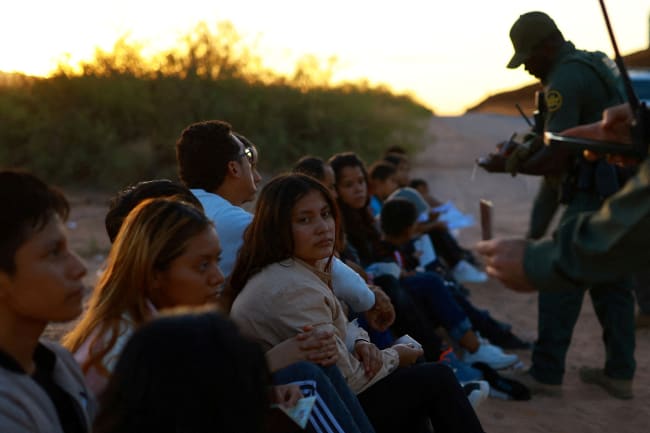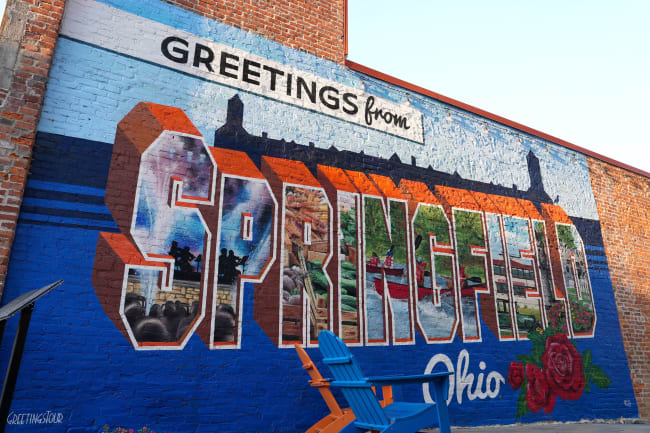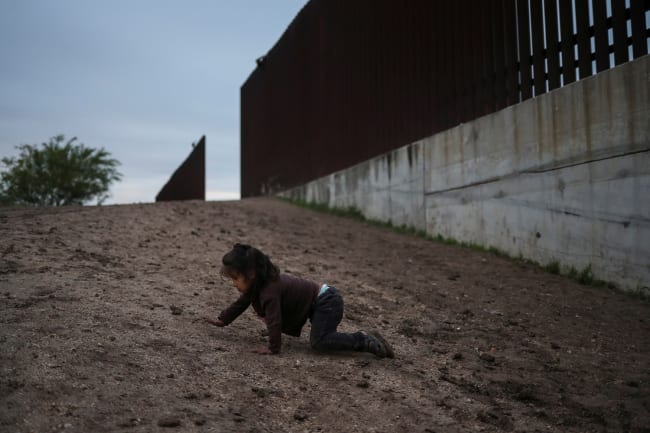Divisive language about immigration, including former President Donald Trump's repeated references to those seeking asylum in the United States as "the enemy from within," continues to dominate the U.S. presidential election, resulting in greater hostility toward those fleeing trauma or persecution from their home countries.
"The fear is horrible," said Nathalie Weeks, who has been a mental health counselor at African Services Committee in Harlem for more than a decade. "The fear that they will be arrested and, I don't know what their imagination is, put on a boat, put on a plane."
The arrival of nearly 215,000 migrants into New York City since the spring of 2022 has placed significant demands on mental health service agencies and community organizations that were already stretched thin by COVID-19. A study led by researchers at the City University of New York (CUNY), for example, found that rates of mental health problems among Harlem residents were two to three times higher in 2021 than they were before the pandemic, people living in low-income housing facing twice as many barriers to health care than those living in market-rate housing.
NYC Health + Hospitals responded to the influx of asylum seekers by opening an arrival center in May 2023 as part of Mayor Eric Adam's Blueprint to Address New York City's Response to the Asylum Seeker Crisis. Based in the Roosevelt Hotel in Midtown Manhattan, it provided medical, social, and resettlement services to nearly 150,000 people from more than 160 countries in its first year. Additionally, arrival center staff have used the patient health questionnaire to screen more than 130,000 migrants age 12 and older for depression since May 2024, those showing symptoms being then further assessed and provided with referrals to necessary care.
Last March, New York City Council Member Lynn Schulman, a Democrat who represents District 29 in Queens and chairs the council's health committee, introduced a bill that would "require the Mayor's Office of Community Health to have at least one mental health coordinator at any location where refugees and migrants receive services from the city." This proposal, which a New York Post analysis estimated would cost $15 million annually, was referred to the City Council's committee on immigration.
At the same time, some community and academic leaders have pursued a vastly different approach to meet the demand for mental health care—collaboration.
Collaborative Projects Increase Mental Health Access
Harlem Strong and ENGAGE are two New York City–based efforts that are bringing people together and adapting models originally developed to provide mental health services to people in low- or middle-income countries for use in an urban context.
Harlem Strong is a collaboration led by the CUNY Center for Innovation in Mental Health, Harlem Congregations for Community Improvement, Harlem Health Initiative, and Healthfirst Managed Care, the state's largest nonprofit health insurer. ENGAGE partners Columbia University Irving Medical Center's Department of Psychiatry, the New York State Office of Mental Health, and three community-based organizations: Acacia Network, S:US (Services for the Underserved), and African Services Committee.
Both efforts train non–health-care staff at community-based organizations to identify people with behavioral health needs and either provide or refer them to necessary services.
People living in low-income housing facing twice as many barriers to health care than those living in market-rate housing
Once the community leaders and public health researchers that formed Harlem Strong identified mental health as a pressing need, they turned to a mental health task-shifting model developed in Vietnam. As rolled out in New York City, the project has two components. The first is a study funded by the National Institutes of Health and Robert Wood Johnson Foundation Systems for Action evaluating a multisector collaborative care (MCC) model that is training staff at four primary care and two low-income housing settings to offer screening, psychoeducation, peer support, and referral to mental health specialists.
CUNY researchers plan to compare the effectiveness of an asynchronous training accessible on Moodle, an online course platform, with a more comprehensive, three-month training that also includes live webinars and interactive workshops taught by clinicians. Since March 2023, three groups of about 10 people have completed the enhanced MCC training, though staff turnover has reduced the number still participating in the study, said Srividhya Sharma, the program manager.
The second component is the Harlem Strong Coalition, which launched in July 2023 and includes more than 70 community-based organizations across Harlem. Its members are given access to the Moodle training curriculum and a resource directory to identify appropriate referrals to care.
Its primary goal is networking, its communications highlighting new city or organizational resources. Quarterly, in-person meetings delve into issues brought forward by its members that, to date, have included the intersection of faith with mental health, provider benefits, and substance use. A future Harlem Strong Coalition meeting will share information and resources to help meet the needs of migrants.
The Results: Addressing Waitlists and Workforce Shortages
ENGAGE launched as a pilot in October 2022 with funding from the Substance Abuse and Mental Health Services Administration (SAMHSA) and the New York State Office of Mental Health (OMH) to address long waitlists at the city's mental health clinics.
"There have been mounting levels of need and mounting challenges within the workforce," explained Miriam C. Tepper, an assistant professor of clinical psychiatry at Columbia University Medical Center. (Representative Adriano Espaillat, a New York Democrat who was born in the Dominican Republic and was an early supporter of ENGAGE, and Representative Mike Lawler introduced the Community Mental Wellness Worker Training Act on June 11 to establish federal grant funding to support these programs nationally.)
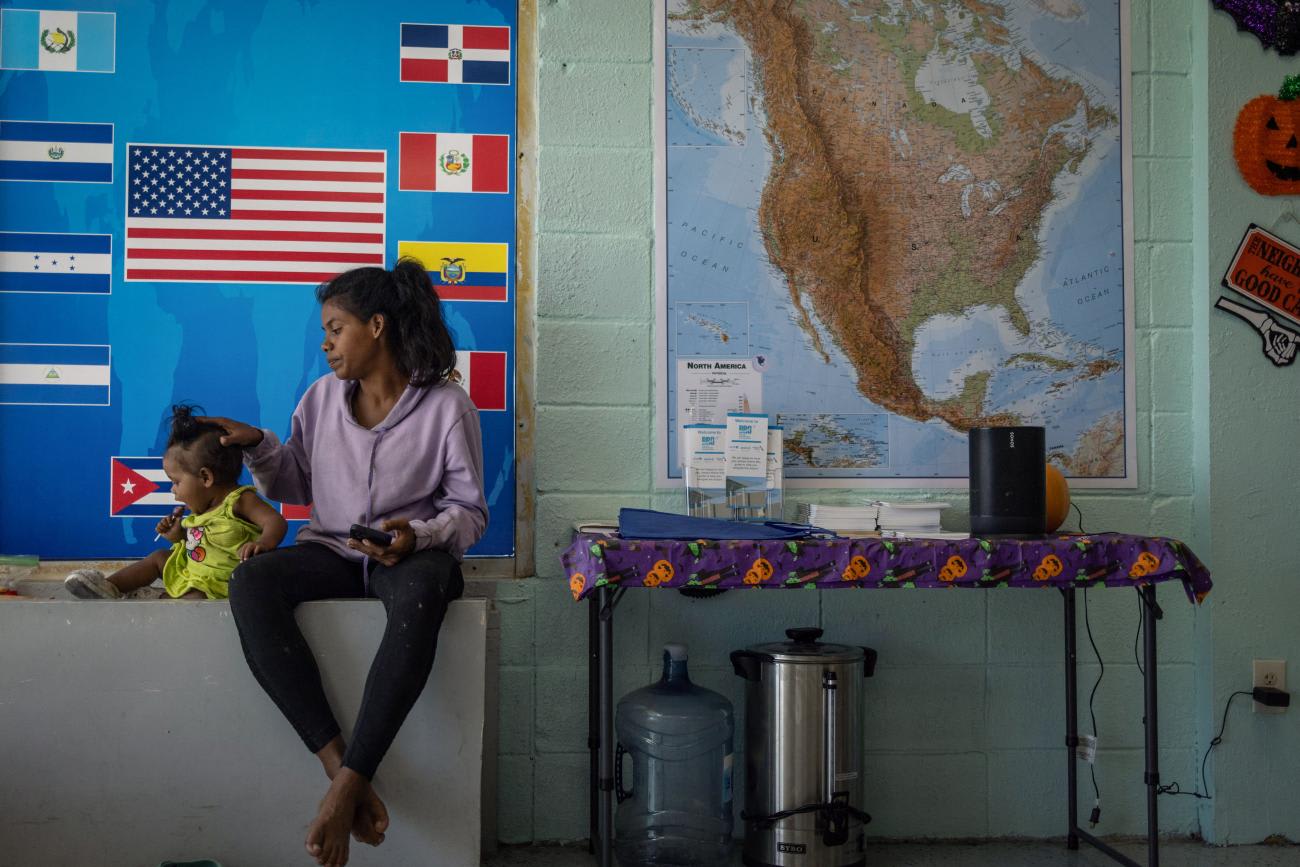
Now funded by OMH for five years and with a reach that spans the Bronx, Brooklyn, Harlem, and Washington Heights, ENGAGE was modeled on a mental health screening and brief intervention that a group of global researchers, working in partnership with the Ministry of Health in Mozambique, developed to address mental health needs there. They trained the country's existing cadre of community health workers to use a digital tool that categorizes people based on their mental health needs.
One advantage of this model, explained Tepper, who is also codirector of the Columbia Mental Wellness Equity Center, is that it immediately identifies people with severe disorders and refers them to more intensive interventions. "The idea is not to replace clinical care, but to diversify the range of options. People with more mild to moderate severity conditions, which are the majority of people, can get care in a really timely way that's accessible and acceptable to them, potentially delivered by someone who may come from their own community," she said.
Individuals with mild to moderate depression or anxiety are offered a four-session intervention called interpersonal counseling. Those with substance use are offered a one-session intervention that combines elements of SBIRT (screening, brief intervention, and referral to treatment), with motivational interviewing, and those with suicide risk, who are not in need of immediate services, are offered a one-session safety planning intervention.
More recently, ENGAGE researchers created a new screening and intervention for social determinants of health, specifically around financial wellness.
"We have really homed in on this because social determinants of health and mental health are so inextricably interlinked and financial wellness underlies so many of the other social determinants of health," said Tepper. They are also adapting the adult model for use with youth ages 14 to 18, she added, noting that early intervention is critical to preventing serious mental illness.
Early intervention is critical to preventing serious mental illness
African Services Committee, which was founded by an Ethiopian refugee in 1981 and now serves more than 8,000 people from the African diaspora every year, is ENGAGE's newest community partner.
"The needs of any new immigrant, somebody who's been here for a year or less, is going to be health care, housing, legal, mental health," explained Weeks. "If you arrive here in this city, you can't speak English, you have no means, that's pretty traumatizing. We're really trying to meet the needs of people who've had ongoing trauma."
Last year, African Services Committee provided mental health counseling to about 75 people on an individual basis and facilitated group sessions that reached about another 50 people. Additionally, three staff completed the three-month ENGAGE training, serving a total of 20 community members. This year, three additional staff completed the training, which Weeks anticipates will significantly expand the organization's mental health capacity.
"There's this common belief that the stigma of having some kind of mental problem or seeking something called mental health service keeps people away from a number of different cultures. But guess what? I'm totally busy. I've been busy for 12 years," Weeks said. "What really matters is your environment, what you've invited people to do, how you address them, your cultural competence. Your cultural sensitivity makes all the difference."
